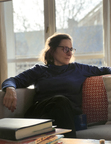Mary Fleming's Blog, page 8
March 27, 2021
When Dreams Really Do Come True, Part II*
 Moving? Again?
Moving? Again?Friday, 26 March
On Tuesday evening, we walked through the newly opened passage and our hearts fell into our dusty shoes. The long-awaited move into the renovated barn was taking place the next day. Cleared and ready, the space was not.
 No room for Carl the piano here...
No room for Carl the piano here... ...or our bed here
...or our bed hereAmidst a myriad of unfinished jobs were some rather serious gaps: our bathroom-to-be had no loo, no fixtures, and upstairs, in what will be the kitchen and dining room while the original house is being overhauled, there was no electricity, no running water.
The barn has been undergoing its transformation into a human habitat for almost nine months now. I have chronicled its gestation often.
 Breakthrough
BreakthroughHow the masons created new windows and enlarged doors, knocked through the 450-year old wall separating house and barn in three places, then plugged the holes back up again to stop at least some of the dust from travelling into our living space.
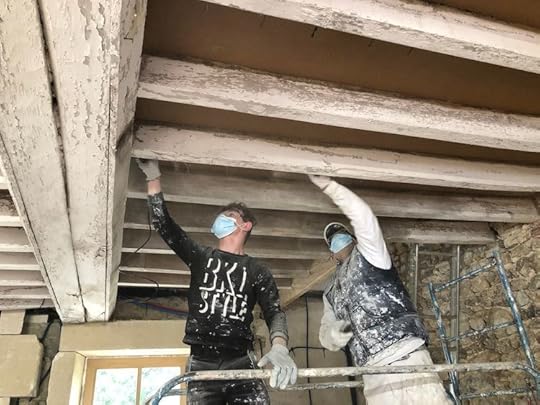
Beams were sanded, pipes and wires installed and a screed laid. Waiting for the cement base to dry demanded Beckettian patience; its sluggishness was blamed for other delays, including this move, which should have happened six weeks ago, before we left for London and the birth of our grand-child.
 Godot moment
Godot momentBy now veteran renovators, we were not overly surprised at the laggard cement or the incomplete state of our new quarters. Tardiness seems wired into the DNA of all building projects, and we have learned to be flexible, to adjust our plans at the last minute.
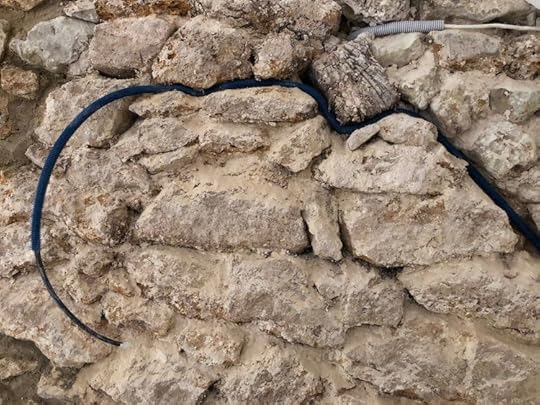
So when the movers arrived at eight the next morning, we had already decided that not everything would be moved, that we would continue to eat, wash, work and sleep, albeit in minimalist fashion, right where we were until the finitions were sorted out.
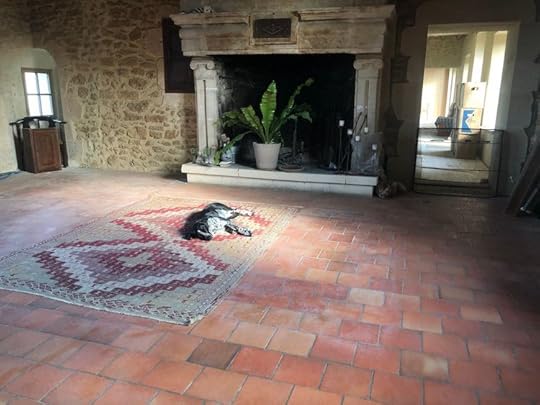
We got the movers started upstairs while the carpenters removed their stuff from our new bedroom and sitting room downstairs. We located the super-long extension cord for the refrigerator and asked the plumber to turn on the water.
By the time the movers were ready to attack the ground floor, the protective plastic sheet covering the parquet, which had been laid once the cement finally dried during our London sojourn, had just been stripped away. Frustration at deficiencies and obstacles melted into awe at the sight of the Perche limestone walls meeting the reclaimed elm wooden floor. Here was the reason we were putting ourselves through all this bother.
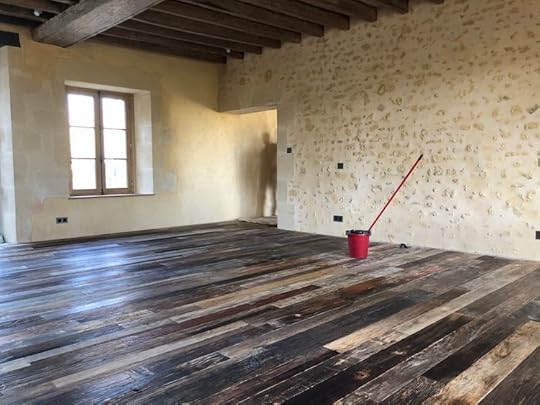
Now the move felt exciting, hopeful, though I still worried about Carl the piano. Compared to the Berlin-Perche relocation he suffered two years ago, displacement from one salon to another is emigration-lite, but a piano is a delicate behemoth. Also, he had been swathed in plastic for the last four months, and I wasn't at all sure the two hours we spent wrapping him up had been sufficient to keep the perniciously permeating dust out.
 Carl moved
Carl movedAs the final act of the move, through the new passage he was rolled. The plastic was removed, and dust-free, he assumed his permanent post, where once the cows got milked. It helped me feel settled too, even without the (also unfinished) bookshelves that should be lining the wall behind him.
 Grand-standing
Grand-standingFor as long as I can remember, I have had a recurrent dream. I am in a place I know. A door I have never noticed opens and I discover a whole other wing of the house or apartment. It's always unusually beautiful, and I wander this magical space in wonderment, wake in disappointment that it was just a dream.
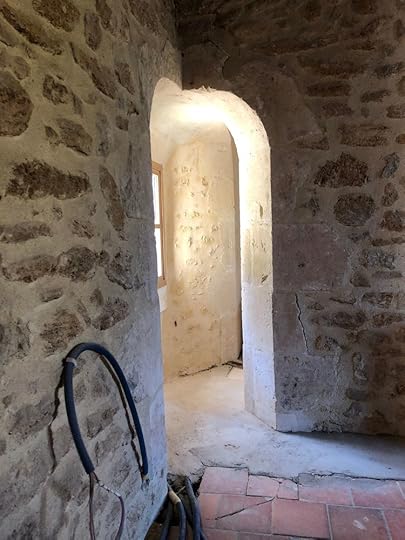
Wednesday evening, after the movers and workers were gone and all was quiet, I had that dream-like feeling, walking from the old house into the former barn, even with the unpacked books and the remaining plastic strips crowding the furniture. Except this time the enchanting space is real. Here's a photo to prove it.
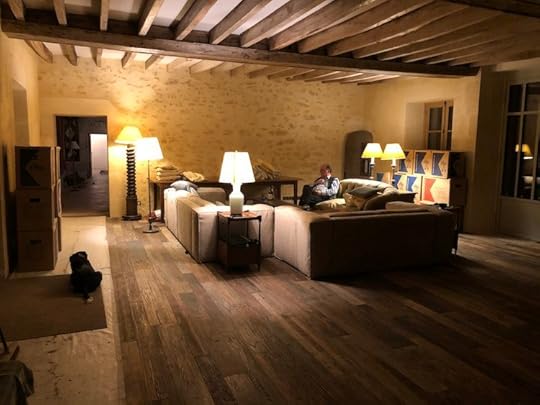
___________
March 13, 2021
Mira-cle
 The Fleming-Kotharis and the Arnolfini
The Fleming-Kotharis and the Arnolfini Friday, 12 March
“What if she’s late?” Georgina asked when we were planning a month-long London trip to coincide with the birth of her and Amal’s baby, our grand-daughter.
An astute point from the mother-to-be. Humans can land on Mars and engineer genes, but much of the birth process remain scientifically elusive. Only 6% of babies, for example, are born on their due date (24 February in this case), an unsurprising fact when you consider that there is not even a universal standard for gestation. The British call it at 40 weeks, the French at 41 and no wonder we have Brexit.
We duly extended our trip by a week and rented a mews house in Hampstead so that once we'd finished our six-day Covid quarantine, we could form a ‘bubble’ with Georgina and Amal and help when the baby was born. By the time of our liberation, Georgina’s bubble looked ready to burst any second, an assessment confirmed by the midwife three days later. “Some time in the next week,’ she said.

We speculated on which day it would be. I pinned hopes on friends' birthdays, while Georgina, who had just stopped working and was happy for some calm before the storm, looked to the end of the week. David was shooting for the following Monday and the last in a long line of important Zoom meetings. As the days came and went, Amal refrained from predictions. One minute he wanted her to come right away, the next he thought she was fine right where she was.
His daughter-to-be apparently agreed. As one Groundhog Day flowed into another, we stopped conjecturing. We had some nice meals together. David and I went for walks together or with friends (one-on-one, per English Covid rules) in the enchanted tree world of Hampstead Heath.

I wandered around the cemetery at the church around the corner, an activity that might appear morbid, especially while awaiting a birth, but one that I find calming, a quiet reminder of the life cycle.
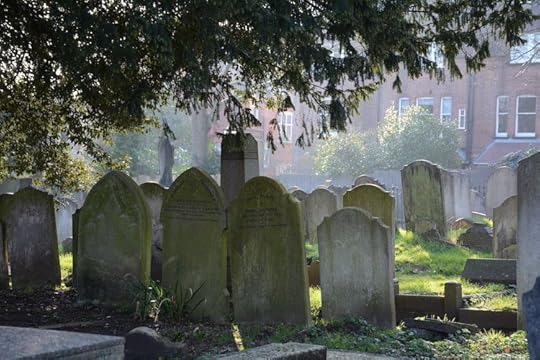
There's not much else to do in London during this Covid Era. With restaurants, museums and non-essential shops closed, with indoor meetings on a cold March day impossible, the wait seemed really, really long; our presence trifling.
Last Thursday—eight days late by British standards but only one by French and now almost three weeks into our visit—Georgina saw a doctor about whether or not to induce. She could wait until Monday, he said, but if the placenta started to deteriorate, the risk of still-birth would increase. Induction the next day, on the other hand, might mean resorting to forceps, ventouse suction or even a caesarean. "It's up to you," he said.
Or up to the baby: given those unpalatable options, she understandably decided that very night the time had come to move out of her warm, snug home.
But again she was in no hurry. The hours ticked by all Friday with little change in the frequency of the contractions, even with Georgina bouncing on a birthing ball and pacing the corridors to help speed things up.
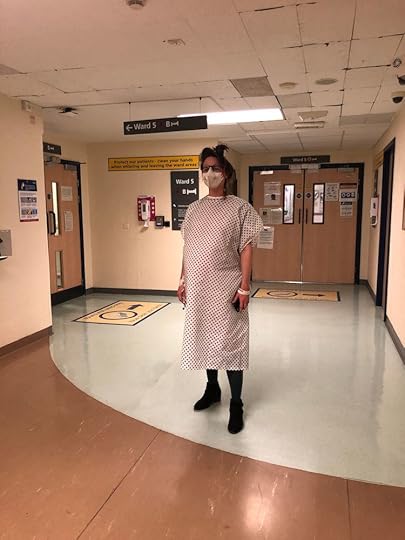
Finally, 26 hours later, at 4.12am, Saturday March 6th, Mira Fleming Kothari, all 3.76kg (8.3lb) of her, was born.
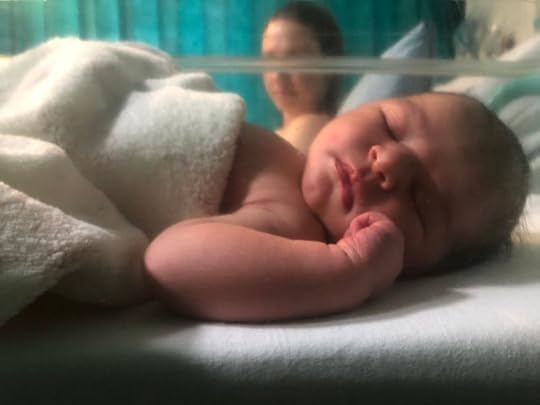
Usually I think of myself as a fairly objective person, at least someone able to discriminate between my heart and my head. But when I met little Mira, still cone-headed and flat-faced from her descent down the birth canal, I could only see perfect beauty, a little bundle of flawless humanity whose downy head, tough little limbs and silky skin caused an unruly burst of joy and love. Not quite as explosive as when my own children were born but closer than I’d expected.
It must be wired into us, that tidal pull, and thankfully so. The first weeks are gruelling and rewards are limited; a newborn is not much more than a digestive tube that sleeps or cries in between the milk going in and coming out.
 In Amal's hands
In Amal's handsGeorgina’s body is ravaged—she can’t walk much farther than from one feeding station to another—and both parents are exhausted, grabbing a couple of hours sleep whenever Mira allows. “Day and night,” Georgina said, “it’s all the same to me right now.”
David and I have finally been able to help a bit. Cleaning and tidying, doing the laundry and the shopping. Even just holding the baby for a while. David has not lost his touch.

Around 1am last night, I worried that I had lost mine. Having stayed over to let the beleaguered parents get some sleep, I could not settle the baby who had just left Georgina's breast. Amal came out and shoved a bottle of Georgina's expressed milk into Mira's searching mouth like an old pro. When she'd polished off that and was still fussing, I sent him back to bed. But on she fussed until finally, worn out, she fell asleep in a ball on my stomach.
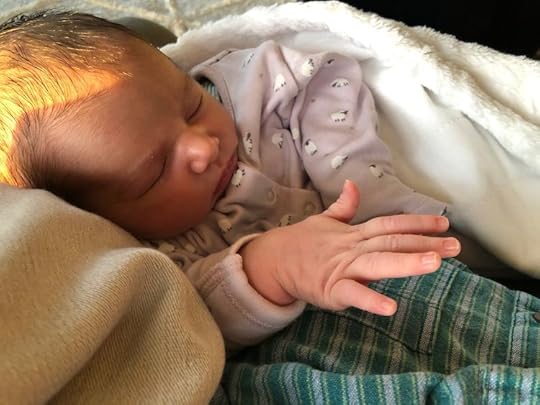
In the early morning light, with Mira still curled in my arms, grand-parent-hood seems a very privileged vantage point. Though exhausted now myself, Georgina will wake up when Mira does and take over. After I've tidied up and done some shopping for them, I'll go back and rest, undisturbed. Tomorrow, refreshed, I will notice the little changes that even 24 hours bring in the life of a newborn.

Grand-parent-hood gives you perspective, a distance in time and space from the immediacy of parenthood. It means I have greater sympathy for little Mira and what a struggle it must be for her to adapt to this harsh world. I can admire my daughter, remember how motherhood, despite the pain and fatigue, makes you feel invincible.
 (photo by Amal)
(photo by Amal)And I can tell Amal, worried about his role, that especially in the age of milk pumps, he still has a lot to do. That it's only the beginning and Mira will need him in ways he cannot even imagine now. That one day they may look back on these demanding days as some of the most magical in their life.

February 20, 2021
Compelling Motives
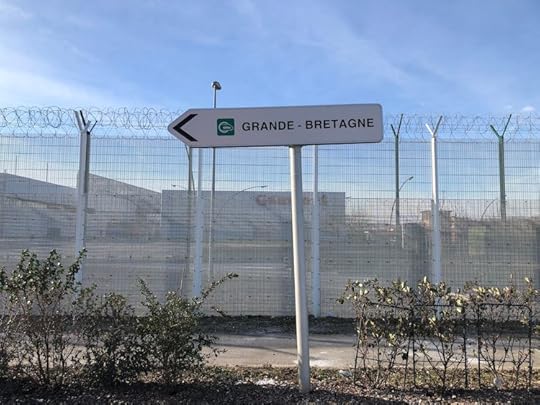
Friday, 19 February
It felt like we were preparing for a dangerous, perhaps impossible mission. All week long I was amassing staples – oil, pasta, tins of tuna and tomatoes. Closer to departure, I bought perishables and David stocked up on another essential, wine. When not shopping and packing, I was filling out forms and piling up paper proof of our need to travel to London to help our daughter Georgina and her husband Amal when their baby is born, ETA 24 February.
Meanwhile, our ability to accomplish this undertaking was looking more doubtful by the day. Cases of Covid continued to soar and new variants were spreading. The French declared the borders closed. Exemptions required un motif impérieux, with death but not birth on the government's list. The British were threatening a 10-day hotel stay for arrivals from abroad. In any case, there would be a quarantine; thus our car loaded with victuals. Stress levels were high.
 Sharing my pain
Sharing my painDespite the dire warnings, last Saturday we set off, a small space carved out on the back seat of the packed car for Tasha, whom we dropped off at her four-star hotel, aka chez Madame P, on the way to Calais and the Eurotunnel.
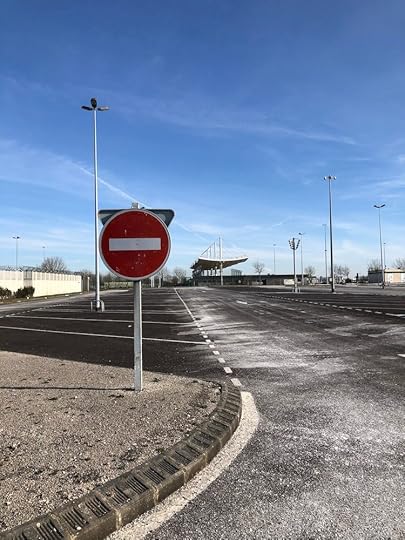
The last time I crossed the English Channel by car (you drive onto a train that whisks you to the other side in 35 minutes), the terminal of le Shuttle was a heaving mass of humanity. Vehicles prowled in search of a parking space like a school of sharks. Shoppers flooded in and out of the duty-free shops.

This time there were only about 30 cars, all flocking near the announcement board and looking more like a school of minnows in the vast empty car park that threw into relief the ubiquitous migrant-deterring fences which make the area around Calais resemble a gulag.

Our train was called and we (well, I; David has a more phlegmatic approach to bureaucracy) waited nervously for the encounter with the customs agents. When our turn came, the French officials asked no questions, expressed no interest in seeing my painstakingly collected supporting evidence. They just stamped our passports and sent us to the UK customs, 20 metres on. A jovial British agent asked a few questions, congratulated us on our motive for travel. He glanced at our passports and Visa & Immigration forms, took my word for it that our Covid tests were negative, and waved us through.
That was that: after our quarantine, we would be able to form a 'bubble' with Georgina and Amal and help with the baby once she is born.
In the end, the worst part of the trip was navigating London in the dark and unpacking that stuffed car, once we finally made it to our rented mews house in Hampstead.
Mews are cobbled alleys generally located in the nicer parts of London because their buildings were constructed as the stables and coach houses to residences affluent enough to afford horses, carriages and servants. The name was taken from the Royal Mews, the sovereigns' stables that once stood on what is now Trafalgar Square. The word derives from an even earlier incarnation, when the buildings were used to house the king’s falcons during their moulting or mewing season, and the English word in turn comes from the French muer, to shed (example: Tasha mue, sometimes beaucoup).
So here we have been for the last six days, two transplants to France, confined like shedding falcons in a former London stable.

Though the appearance of mews houses can vary widely, the architecture is similar: squat buildings, built cheek to jowl, with back gardens separating them from the big houses on which they used to depend. The classic layout is a ground floor kitchen where the horses and carriages were kept, an upstairs sitting room and a bedroom where the hay would have been stored, and, up more steep, narrow stairs, a room under the eaves for servants.

It is a perfect set-up for us, since we will be here for five weeks and both wanted work space. David has taken over the sitting room...
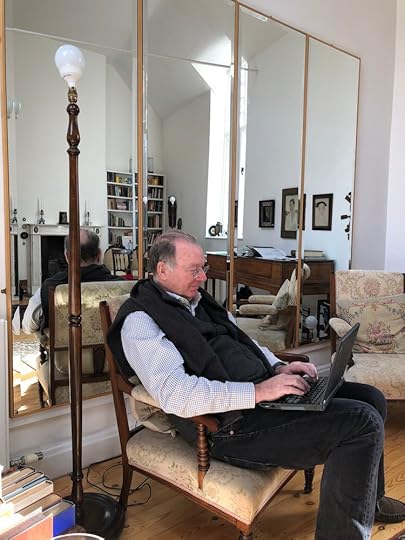
...and I am up top in the garret.
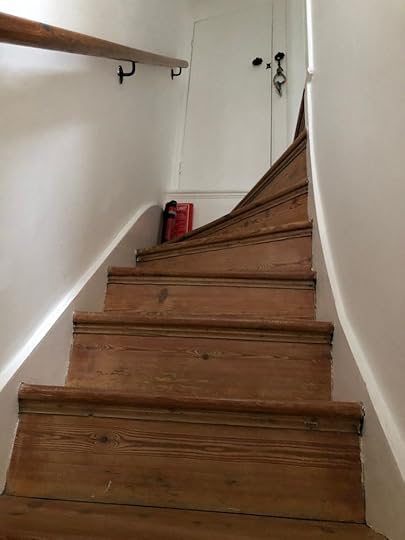
What better inspiration, you might think, especially in a comfortable house that is clearly someone's home. Especially here in Hampstead, an area imbued with writerly vibes. In fact, a couple years ago I visited John Keats' house with Georgina, Christopher and Kerry. That was in the good old days, when you didn't think twice about hamming it up and donning period clothes and bonnets last worn by who knows whom.
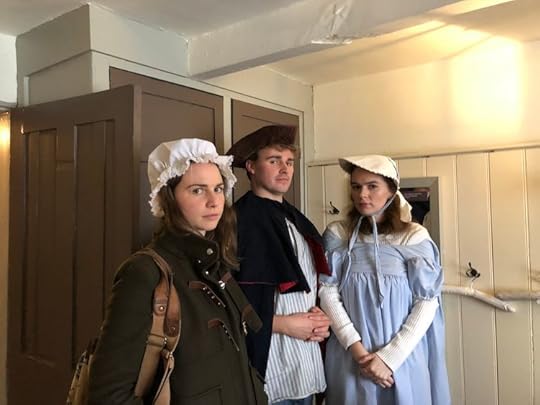
Virginia Woolf and her husband, the internet tells me, often visited one of the grand Georgian houses to which these mews were once attached and that I can see across the gardens from the window in this room of my own.
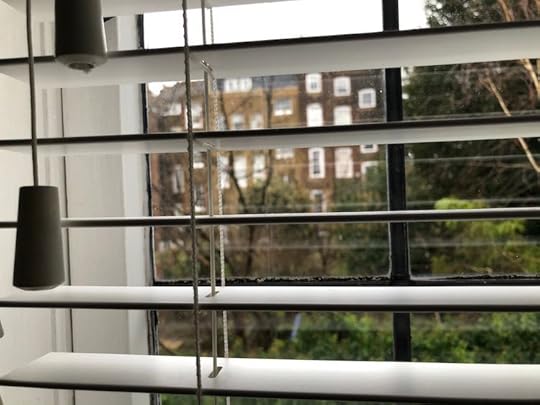
Plus I have no dog to walk, not even a piano to play. It's quiet as the countryside.
And yet I've accomplished nothing. Besides being in between projects, I feel unsettled at being locked up, at getting my only exercise from walking up and down steep stairs and jumping around in front of a YouTube video. Somehow, certain ingredients needed in the creative juice cocktail just aren't there.
But that's fine. It's not why I'm here, and we have been lucky. Our quarantine could have gone on for two weeks, if not for the Early Release Covid Test we took yesterday. Negative results came in just minutes ago, and soon we can get down to our mission, our motif impérieux: to lend helping hands when Georgina and Amal's baby, our grandchild, decides she's ready to come into this world.
 Friday evening, bubble formed
Friday evening, bubble formed
February 6, 2021
Overturning Earth
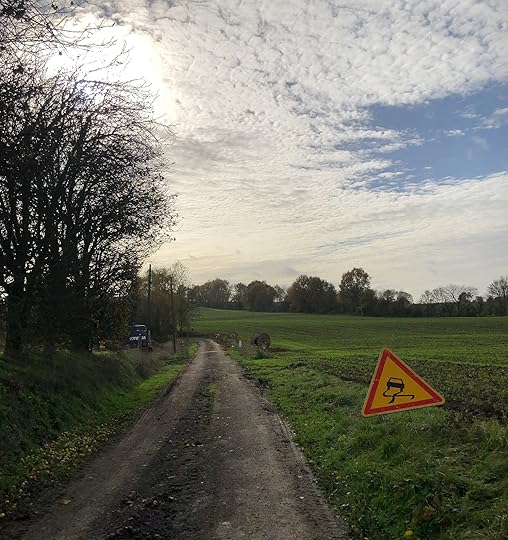
Friday, 5 February
“By the end of next week,” our green guru Claire said, “it’s going to look like Verdun.”
That was in early November last year. The indoor renovation of our property in the Perche had been going on for months, and it was finally, much to David’s relief, time for the outside work to begin. As we cast our eyes around the lovely autumn day, it was a little hard to imagine our sweet garden looking like the ravaged World War I battle site.
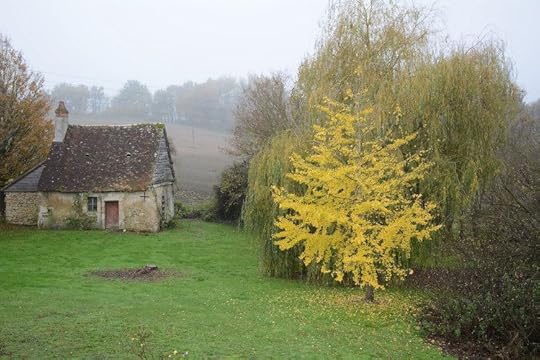
The following Monday the electricity company kicked things off when they came to bury our power lines. It did look like an army was approaching...
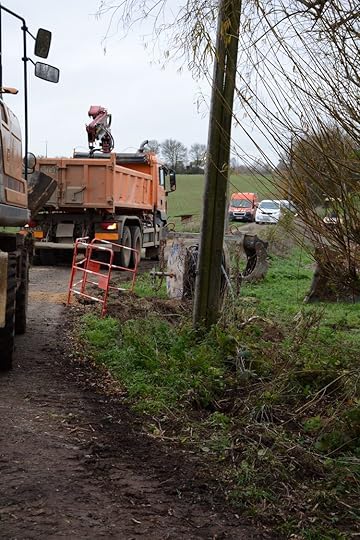
...but the skidding car sign (top photo) they put up on the lane that goes no farther than our house seemed to be taking taking bureaucratic imperatives a bit far.
They did dig a trench...
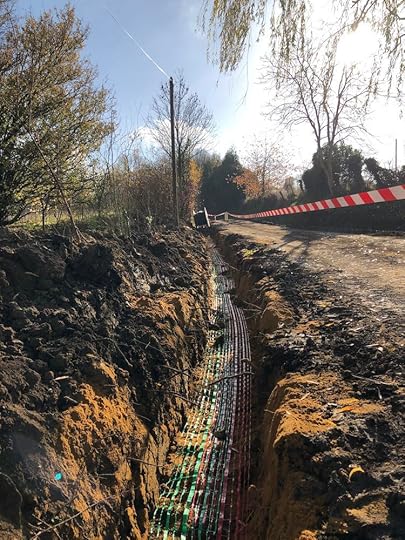
...that, once it was finished off by our terrassiers Yohan and Michel, did leave the landscape looking a little Verdun-ish...
 Michel, entrenched
Michel, entrenched...but the sun was shining, the people smiling.
After the trenches were refilled, Yohan got to work in earnest on the transformation of our garden.
Though a digger’s work may at first appear brutish and monolithic, it is anything but. A pelleteuse in action resembles a grazing prehistoric animal.

The person manipulating the controls must be skilled at navigating the chenilles, or caterpillar tracks, up over big mounds and down into deep holes, while also possessing a fine, light touch that guides the shovel as it chomps into this bit of earth but not that root, as it grabs at this bush but not that tree. Its motions are mesmerising.
 Watching Yohan at work
Watching Yohan at workWe first witnessed Yohan’s combined talents at the controls when he tackled our neglected pond.
 Claire and Estéban
Claire and EstébanWith slow, graceful swoops of the shovel, he removed a barbed wire fence and much scrubby brush, then began to dredge the bed. Instead of sludge, out came years and years of cow dung that, rather than acting as a fertiliser, the way it does on land, had been absorbing the oxygen and killing plant and animal life.
 Run! Here it comes!
Run! Here it comes!The artistry came in knowing when to stop - if the shovel cracks the bed, the pond will no longer retain water - and in being able to sculpt the slope, in this case at just the right angle for the frogs, toads and salamanders that should, according to Estéban (our other green guru), return to the cleansed habitat. These days the pond is still a bit bare around the edges, but the water does look healthier.
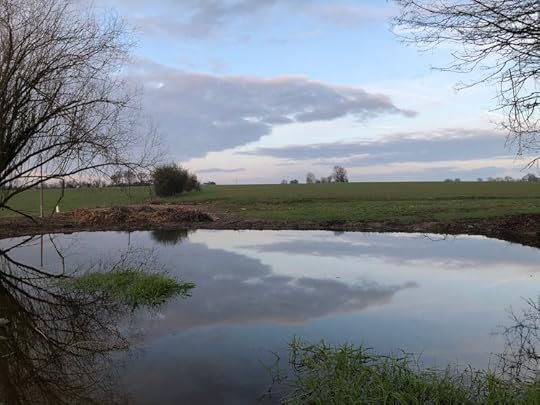
Next point of attack was the hedgerow planted 30 years ago to separate garden and house from the fields, when the two pieces of Deux Champs were divided. Bushes had grown into full-fledged trees and stood as a wall between the parts we are reuniting. First Yohan freed our little boulangerie. In the late afternoon sun, she seemed to be thanking us for her restored dignity.
 Ah, freedom
Ah, freedomThen came some thinning out back and some levelling of a rise.
 New view onto the field
New view onto the fieldBy the end of the week, there was indeed a lot of churned up earth. But as we left for Paris with the sun still shining, Verdun seemed a bit of a stretch.
Not so by mid-December. During our two-week absence, much more earth had been overturned and moved, both to finish levelling out back and to replace and re-position the septic tank. Plus - key element here - it had rained and rained, and all that clay soil had turned into mud dense enough to rival what gave all those poor soldiers trench foot in 1916. In our first tour of the garden, I sunk thigh-deep into the stuff, perhaps my just deserts for having sniggered at that skid sign in finer weather.
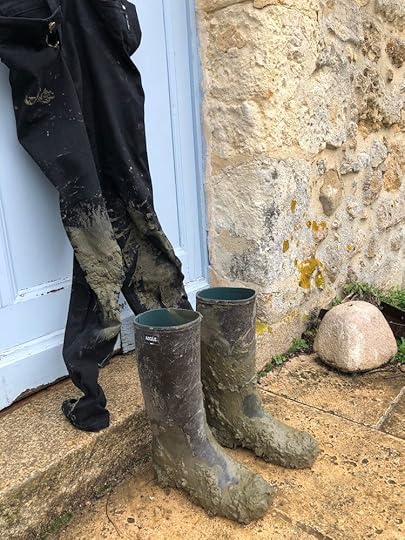
Neither David...
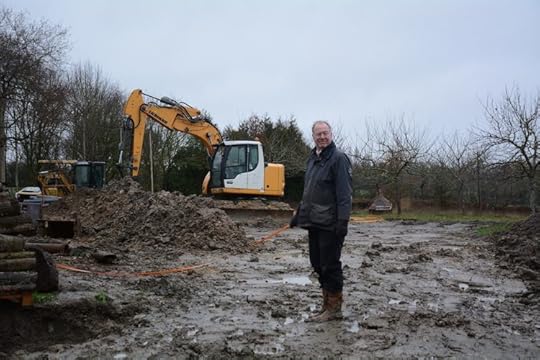
...nor Tasha...
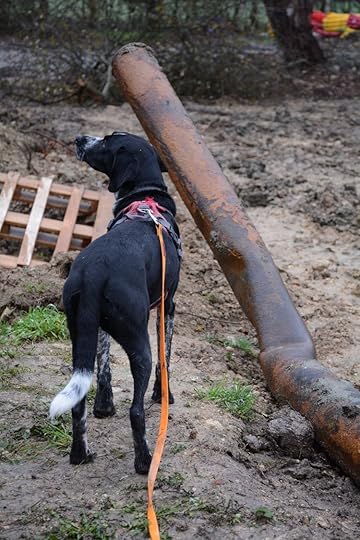
...knew where to turn.
The trees that Estéban had pollarded looked as though they had been bombed rather than trimmed.

All we were missing to complete the desolation was a cold snap, and that we found on our recent arrival mid-January.

Claire might have got the timing wrong, but she was right about the image: the place indeed resembled the site of that 10-month long battle.
Of course Deux Champs is not Verdun, where whole villages were destroyed, 300,000 soldiers were killed and the total casualty count reached 750,000. Ours is a work of creative destruction, the overturned earth merely the foundation for reincarnation.
But the bleak, devastated landscape does fittingly reflect the morose mood right now, almost a year into the Covid Era and our first confinement last March. The snow quickly melted and it's back to rain and and more rain. The mud is now impassable, even for Yohan's digger, and greener pastures are looking discouragingly beyond our reach.
 Rear window
Rear window
January 16, 2021
Four Years On
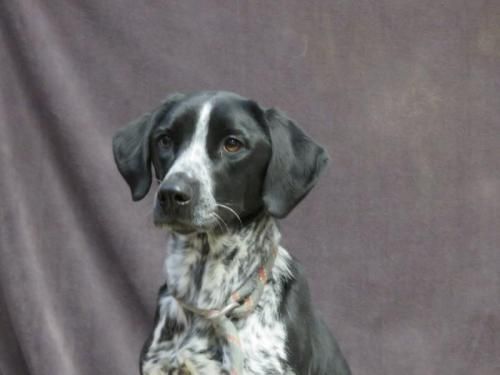
Friday, 15 January
If you saw the above photo while still deranged with grief over the recent death of your last beloved lost dog, would you have been able to resist saving her from the pound?
If you are normally a responsible, rational adult, the answer to the above question is most likely, Yes, you could have resisted, especially once you had an inkling of the particulars, i.e., that she was terrified of everything and everyone and that, as a young hunting dog, she needed professional levels of exercise.
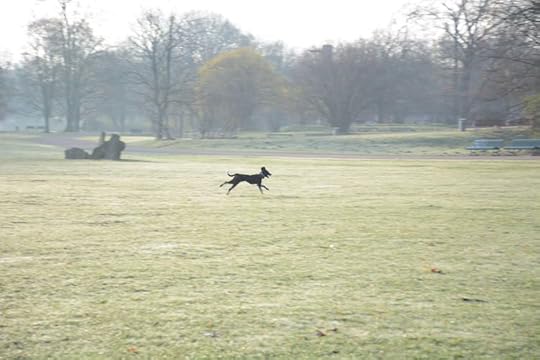
On January 6th 2017, this traumatised dog was found roaming the streets near the northern city of Arras and taken to the shelter in Tilloy-les-Moufflaines. The very next day, I saw her on the SPA animal welfare website. Three days later, on the 10th, after having obsessively consulted the photo and made phone enquiries, I was on my way to pick up the two-year old hound.
Because she had no ID, Tasha's arrival date was designated as her birthday. If since then the day has often passed unnoticed in our household, it's unlikely to do so again. From now on the 6th of January will be etched into the collective memory as the day a Trumped-up murderous mob assaulted American democracy.
Four years begins to define an era, and it seems a good moment to take stock of Tasha's tenure with us.
As any regular reader of this blog knows, her arrival shook our lives considerably. Fear of the outside world has made her difficult and demanding at every turn; in her early days she was dubbed by a fellow dog walker la Terreur des Tuileries. Over the years, I have recorded our attempts to calm and train her, often with the aid of professionals. From Koffi in Paris...
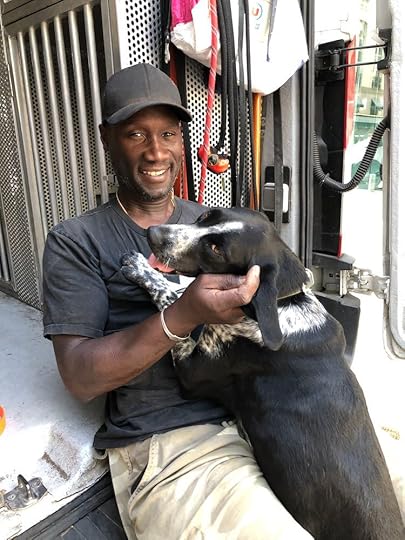
...and Anna in Berlin...
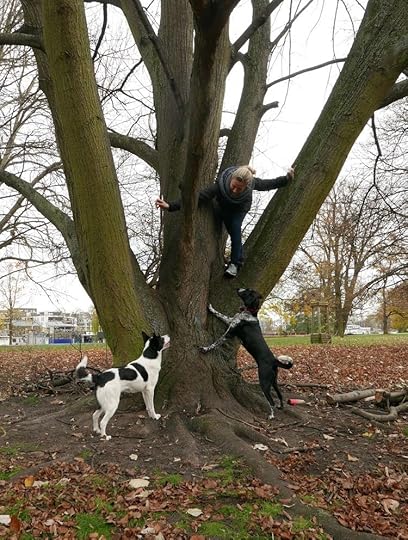
Happily, the efforts have paid off. Though she may still act as if having her harness put on (something that happens three to four times daily) is the equivalent of being locked in a cage, she does now bark less at other dogs and almost never at joggers. Her self-restraint is generally much improved, and she has learned to relax, even if in sleep she's still appears to be chasing deer.
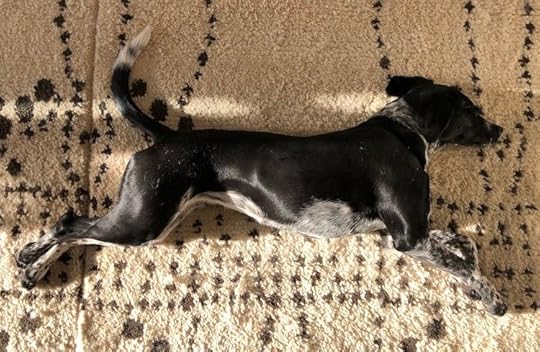
At times, in fact, I have even thought of Tasha as a super-heroine.
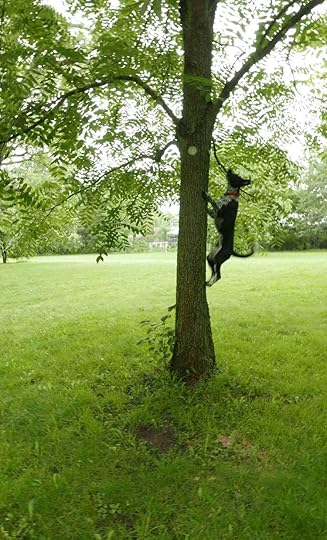
The dog also deserves credit for remaining faithful during four tumultuous years in the life of her owners. She adapted to our Paris world...
 I've got the baguette; now where's my beret?
I've got the baguette; now where's my beret? ...and followed us back and forth to Berlin...
 Mein Gott (Soviet War Memorial)
Mein Gott (Soviet War Memorial)...then threw herself into our post-Berlin life in the Perche...
 Catch me if you can
Catch me if you canAs time has gone on, a spirited and wilful personality has poked its way through the angst. She may be a mongrel of unknown origins (beyond a visibly strong streak of German short-haired pointer), but she acts like - and expects to be treated as - a princess. She certainly necessitates a royal budget.
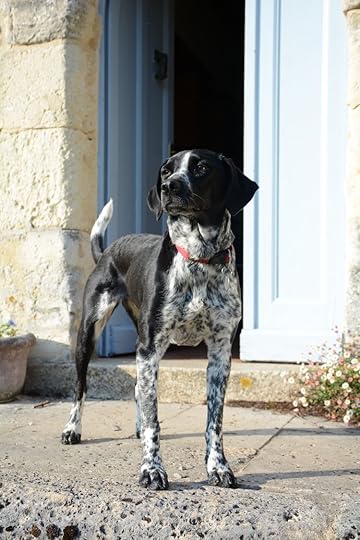
Her requirements for comfortable bedding know no bounds...
 If you won't let me sleep on your bed, I guess this will do
If you won't let me sleep on your bed, I guess this will do...and her demands for attention can be somewhat despotic...
 Love me, now.
Love me, now....but she is clever, sporty and fun, loving and lovable.
The bottom line is that while still a challenge, Tasha - unlike too many humans - has learned to tame her darker angels, and four years on, we feel blessed that this lost dog from Arras is part of our life.
 Older and wiser
Older and wiser
January 2, 2021
Looking for the Light
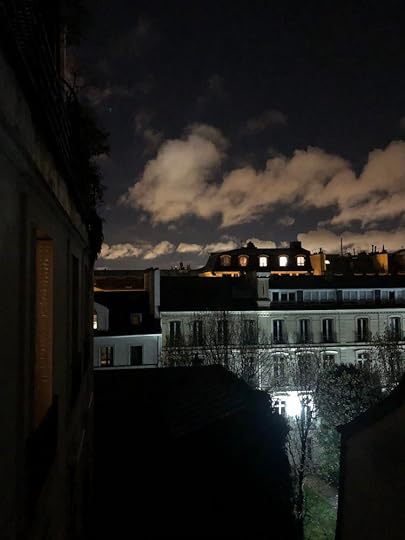
Friday, 1st January
For the last weeks, it seems I have been living almost constantly in the dark. I wake and work and walk Tasha before the sun comes up, and often don’t go outside again until the dog’s late afternoon promenade, when the day is well on the wane. Even at noon, bad weather has meant the sky has rarely brightened beyond a dull lead grey. It’s been an appropriate way to see out a sombre 2020.
Just as aptly, our year finished with all too many reminders of how quickly Covid can close in.
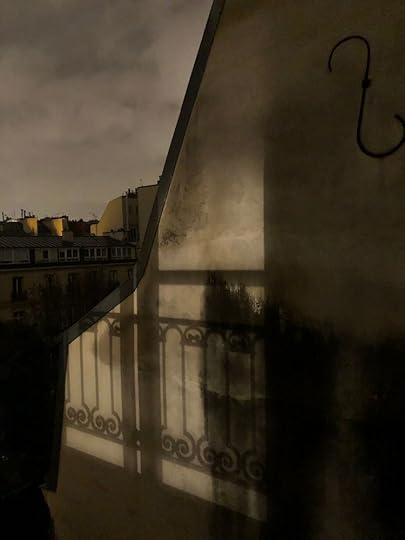
Our daughter and son-in-law had to cancel their Christmas visit with us. They live in London, where a 70% more contagious variant of the virus began to rage, and all travel to and from England was banned (oddly just days before the British politically, socially and economically isolated their country via Brexit). As Georgina and Amal are expecting a baby at the end of February, their absence was especially disappointing for the grandparents-to-be.
A day later my husband David woke up with body aches and a fever. The night before his test, we learned that his 94-year old mother had come down with Covid and was being hospitalised. After nine months of almost complete isolation from family and friends at her assisted living facility, it seemed a particularly cruel blow.
David luckily tested negative, and a few days after Christmas, his resilient mother appeared to have survived Covid and was almost ready for discharge.
Though we are not officially locked down, it has often seemed so. Partly thanks to a lot of rain, Tasha and I have found ourselves alone in the Tuileries Gardens on many a morning. It is both eerie and magical, having the heart of this great city all to myself.
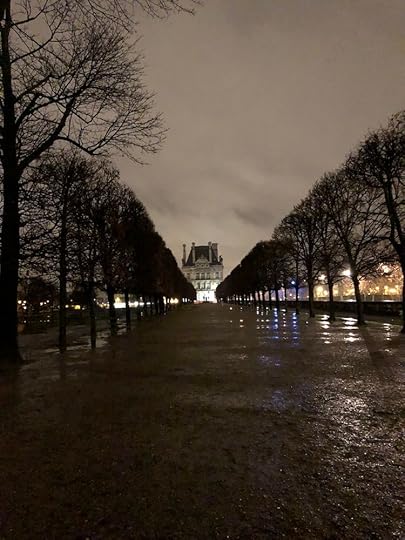
In keeping with the gravity of the times and to discourage outdoor gatherings, the French government cancelled the fireworks last night. With an 8pm curfew in place, here is the boulevard St Germain on New Year’s Eve.
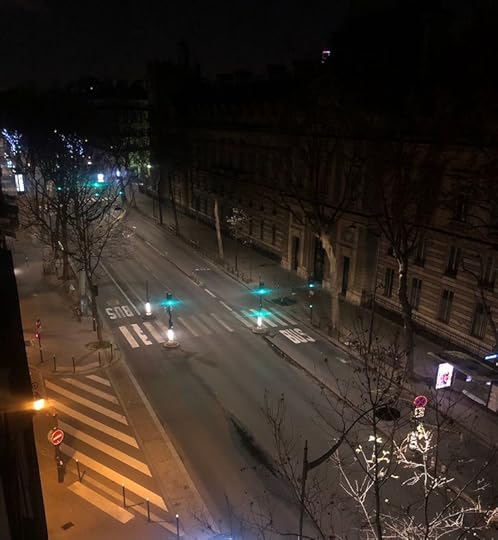
It is now Saturday morning and I have just deleted the rest of what I wrote yesterday. We got the news last night, the first day of 2021, that David's mother had died, I guess you'd say from 'Covid-related complications'.
 1996, Château Gaillard
1996, Château GaillardBeth, one of the most gentle and loving souls I have ever met, had a long and mostly happy life, but what an end. All those months of solitary confinement to protect her from the disease that somehow got through the door anyway. Even her daughter Julia, who lives 10 minutes away and has faithfully cared for her over the years, could not be with their mother in her final days. The circumstances deepen the ache considerably; the thousands of similar Covid stories do not alleviate the pain of this personal case.
But I cannot end on a negative note. Beth would not have stood for it. Buttressing her resilience and benevolence was an unfailing optimism. She would insist I remind you that hard as it has been to be separated, we can still find joy in virtual togetherness. Look at your beloved family, she would say, and all those smiling faces on the New Year's Zoom card.

The mother of four, grandmother of four more and great-grandmother of three, would add: Think of your radiant daughter and the new life she is bringing into the world. You have no idea how much it will enrich all of yours.
Behind lots of bad, Beth would conclude, look for the good.
In loving memory of you, dear Elizabeth Carney Morrison, here's hoping for 2021.
 2011
2011
December 12, 2020
The Netflix Life
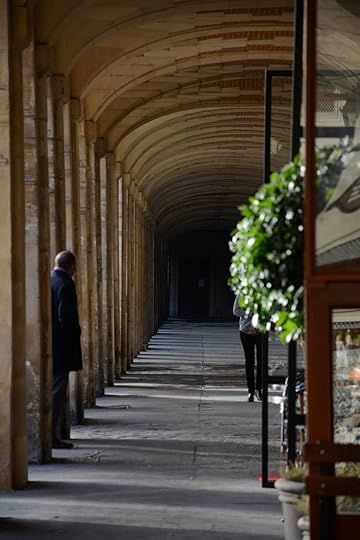
Friday, 11 December
In the sweet and funny 1993 film Groundhog Day, Bill Murray plays Phil Connor, a curmudgeonly weatherman sent to small town Punxutawny, Pennsylvania to cover the eponymous event.* A snowstorm retains him in the town and, it turns out, in time: he keeps waking up to the same morning, reliving the same events, over and over. His increasingly desperate attempts to break the cycle fail; Phil always opens his eyes in the same bed at the Cherry Street Inn to “I Got You Babe” on the clock-radio.
I am not the first to point it out, but 2020 will go down in the books as one long reality version of that movie.
Thankfully, unlike Phil, we are not fated to greet every morning with Sonny and Cher, but doesn’t your day (after day) look something like mine: breakfast and a much-savoured morning coffee, followed by some combination of work, exercise, reading, piano, until supper, Netflix and bed?
 Measuring out my life in coffee spoons
Measuring out my life in coffee spoonsDon't the conversations you have these days with friends and family over Zoom or WhatsApp increasingly revolve around those Netflix series? What's your opinion, for example, on Season 4 of The Crown and have you seen Fauda or The Queen's Gambit? Aren't streaming tips passed around the way advice once was about the best new restaurant or the latest, greatest exhibition not to be missed? Because really, besides Covid-19 and the many ways it has imperilled and diminished our lives, what else is there to talk about?
 Carl, self-isolation
Carl, self-isolationTwo weeks ago we were told to pack up the sitting room and leave our place in the Perche. The masons were ready to break through the 450-year old wall and connect the house and former barn. There would be lots of noise and dust and little heating. Plus the cooker and fridge were blocked by sofas and chairs, the table littered with lamps, since we'd moved all the furniture but Carl-the-piano into the kitchen.
We headed back to Paris, sans attestation, as there's no category for 'fleeing uninhabitable spaces', but were fortunately not stopped. You might think returning to the City of Light from the countryside would have provided a jolt to our pastorally attuned selves, but in this topsy-turvy world, all the action is taking place around the renovation in the country.
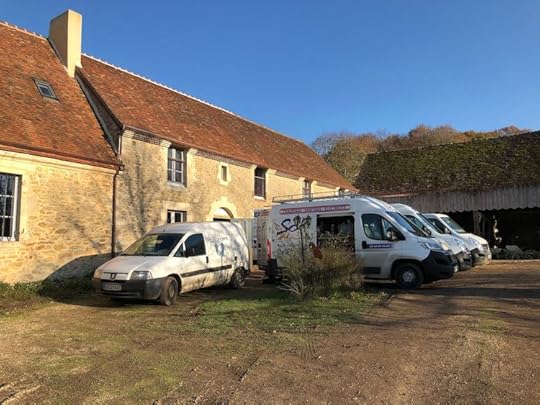
Here in Paris, with no tourists, with museums, cinemas and restaurants closed and gatherings with friends interdits, there’s even less to break the gentle rhythm of the days than there is at the end of our lane in the Perche.
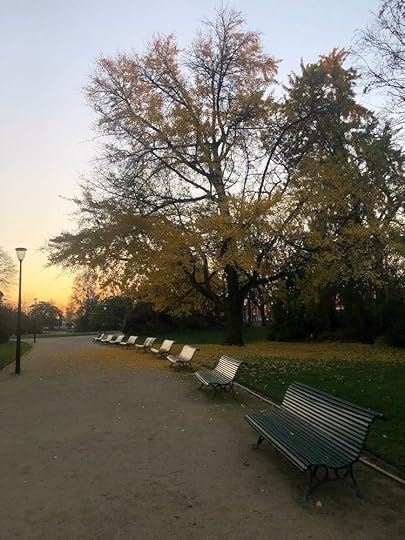
The shops have re-opened, but that has mostly provided me, anyway, with greater cause for alarm. I won't bore you with the circumstances of how I ended up at the BHV department store on a Saturday afternoon (something I wouldn't generally do even in normal times), but there I was and the place was a Covid nightmare. People were wearing masks but otherwise seemed to be seeking out extreme proximity, rather than avoiding it. I bought my non-standard batteries and ever-harder-to-find 2021 agenda refill hunched over and trying not to breathe. Today I feel very lucky to have escaped uncontaminated. Going there in the first place was ill-advised, but at least I knew I was being stupid, something my fellow shoppers seemed stubbornly oblivious to.
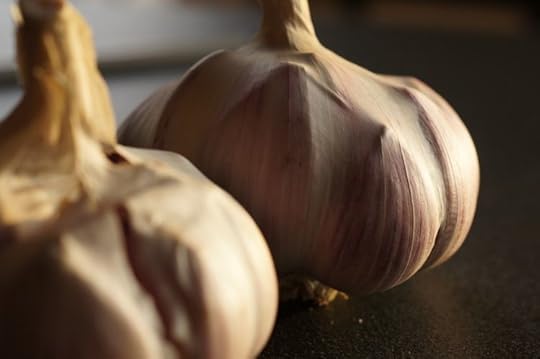
I do understand that constrictions are really getting to people. All the novelty of changing gears, of slowing down and returning to some less frantic mode of existence, has long worn off. Humans miss seeing other humans, and they need something more real to look forward to than the next season of Sex Education, however charming and engaging the series may be.
In real life, the end of year holidays approach laden with restrictions. Christmas is not looking very merry nor the New Year very novel. In the here and now, the backdrop to our predictable days is chaos and uncertainty, a simmering angst.
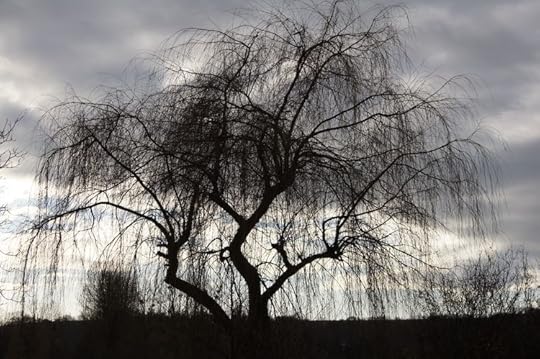
But if we are going to behave like the BHV shoppers, only a vaccine can save us from our foolish selves.
At the end of Groundhog Day, Bill Murray finally wakes up to a new morning. Living the same day over and over again has taught this overbearing grump humility and humanity, which in turn allows him to get the girl he fell in love with during his ordeal. It’s an uplifting tale of redemption. In the beginning of our real-life Groundhog Day, we entertained thoughts that the pandemic would have equally absolving powers, would enrich our lives and edify us with a new, deeper wisdom. Sadly, that hope now seems the realm of another fiction: Pollyanna.
 Where's the meaning in this new morning?
Where's the meaning in this new morning?____________
*For those of you who don't know what Groundhog Day is: Pennsylvania Dutch superstition has it that if this hibernating critter emerges from his hole on a sunny February 2 and sees his own shadow, he will take fright and plunge back inside for another six weeks, and spring will come late.
November 21, 2020
Only Connect
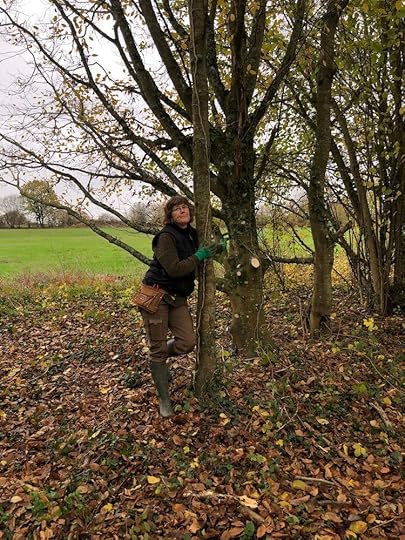
Friday, 20 November
Where would we be, I sometimes shudder to think, if my friend Tala, a second-career gardener, hadn't trawled the internet and found Claire, another second-career gardener?
Last year, when we bought Deux Champs, our property in the Perche, it came as two lots: the one hectare (2.5 acre) house and garden and the 20 hectares (50 acres) of surrounding farmland. Quite quickly we found local architects Monsieur and Madame Jaussaud (also on the internet) to handle the house renovation. As for the land, it was still being farmed by the seller, Monsieur L.
"But what," David kept asking, with greater and greater urgency, "are we going to do about the garden?" Following the division of the property in 1989, subsequent owners had enclosed the house and garden with fencing and a hedgerow that had grown into substantial trees. In the spirit of newfound unity, we wanted to open things up again.
"Tala's looking into it," I'd reply, confident that my oldest friend in Paris, previously a journalist and capable of descending into the rabbit hole of anything horticultural for days at a time, would come through for us.
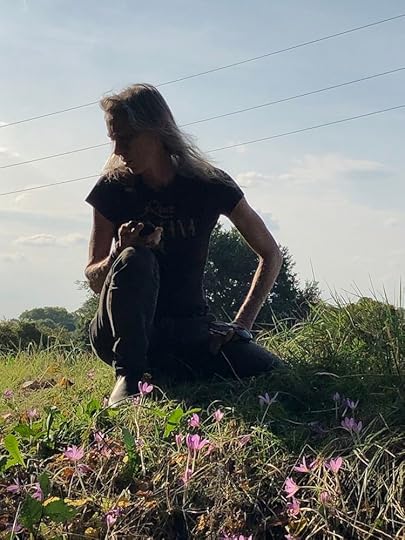
Indeed she soon had three names of landscape architects in the area. About Claire Tala said: "She seems to do a lot of different things but she might be able to help you."
Help us, she has. An English woman who moved to the Perche about 15 years ago with her husband Yvan, Claire retrained as a landscape architect at the prestigious Ecole Nationale Supérieure de Paysage de Versailles after a first career in communications. She has not only built a beautiful garden; she has also turned their 10 hectares (25 acres) into a nature reserve and developed an Airbnb business around two elevated guest houses, one of which is actually perched in a tree. Take a look: Perché dans le Perche.
From our first meeting in March, when I told Claire the farmer would soon be retiring and we were wondering how we might do something useful and environmentally responsible with the land, it has been about more than just the garden. Claire quickly began to imagine a project for the whole property that would help revive the soil and plants and animals that suffer so under intense farming. She brought in Estéban, a young environmentalist whom she has mentored, to help.
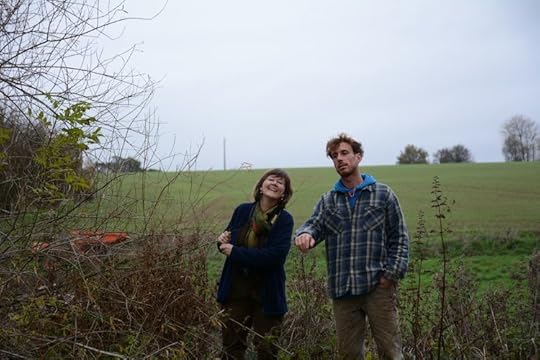
Through Claire we met François R, the most respected ecologist in the Perche, as well as people from Natura 2000 and the Parc Naturel Régional du Perche. Soon they were all out cataloguing the flora and fauna.
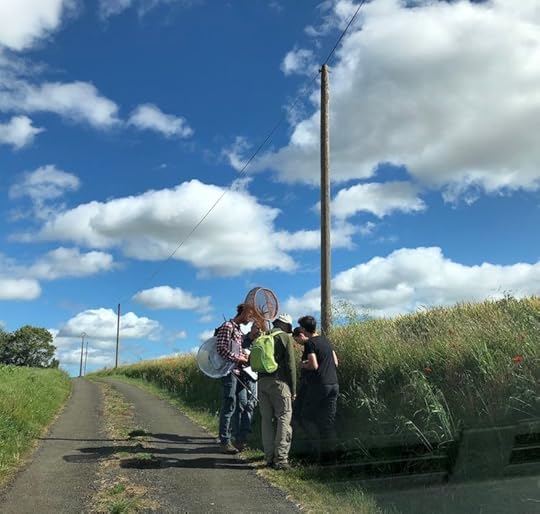
Next she introduced us to Patrice W, the most dynamic organic farmer in the area. In July he gave us a tour of their 300 hectares and explained eloquently and enthusiastically how he makes an organic farm work not just philosophically but economically.
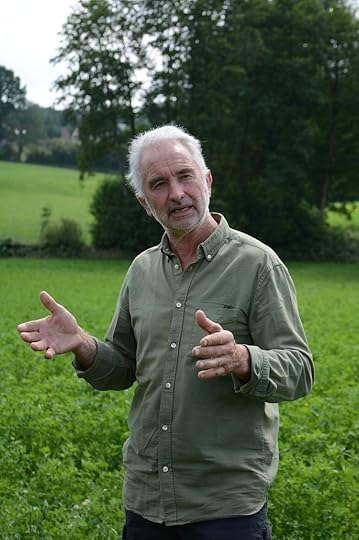
He and his wife Dominique have recently bought a 17th century manor house, which they somehow find the time to restore both inside and out themselves.
 new garden walls
new garden walls refreshed interiors
refreshed interiorsMeanwhile Claire and Estéban were preparing a study on the feasibility of restoring wetland areas and replanting hedgerows on the property. Early October the four of us presented an agro-eco project to the Parc du Perche in the hopes that they will get involved too. In the interim Patrice agreed to sow the fields after Monsieur L's last harvest late October.
At which point in stepped more connections of Claire's: Hannah and Dorian, two young documentary makers who think our project film worthy. They've already shot footage of the farming activity and have interviewed Monsieur L, Eric Y who wrote a history of Deux Champs, Claire, Estéban, David and me as they prepare a trailer to present to possible funding sources.
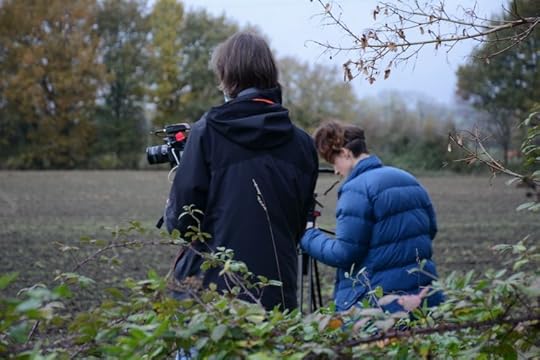
As for the fields, no sooner was the treated corn out than the untreated wheat, oats, field beans and vetch were going in.
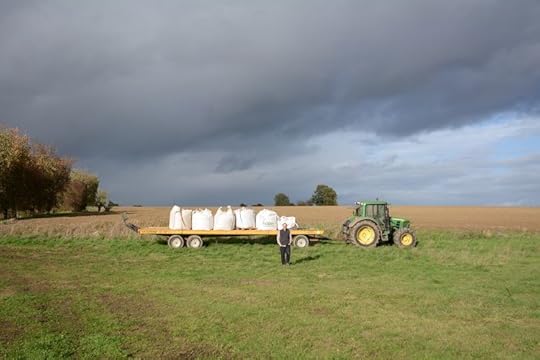
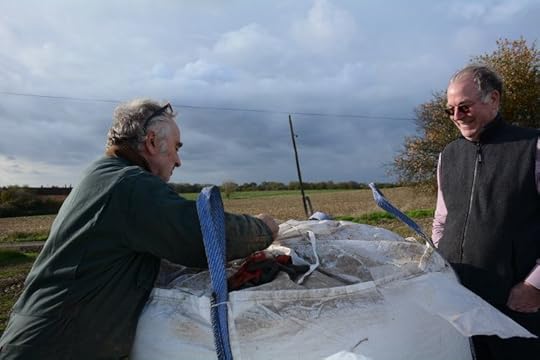
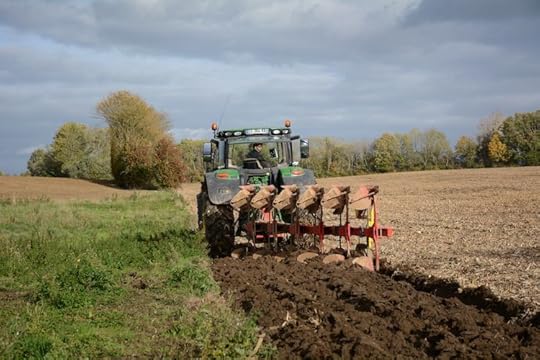
 Tender, unmedicated shoots
Tender, unmedicated shootsIt's been thrilling to watch Patrice and his sons Vincent and Léopold churn up the earth and plant chemical-free crops, to witness the emergence of the delicate shoots. I can almost see the earthworms inching their way back, smell the sweet vetch that will flower in spring, hear the bees buzzing about the pollen.
But just as inspiring has been the human side, the meeting of Claire and all the passionate, engaged people in her Perche world. Connecting with them has given us a quick sense of belonging here and offered a ray of light in what can otherwise seem like pretty dark times.
If any of you are now wondering as David did what-about-the-garden, don't worry. That story will be coming soon.
 A new day dawns at Deux Champs
A new day dawns at Deux Champs
November 7, 2020
Darkening Days
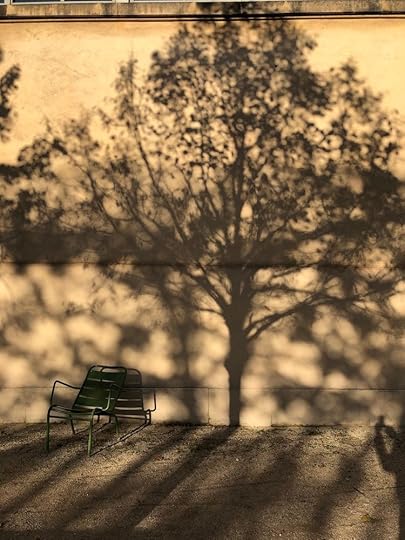
Friday, 6 November
I got my wish and am back in Paris but it’s been a bit of a rough week. The American elections have made concentration on anything else close to impossible. Whatever your political views, it’s distressing to see a nation so riven, especially when the discord looms as an example writ large of what’s happening the world over. I live in a country, after all, where a teacher was recently decapitated on a leafy street in a Paris suburb. The subsequent rhetoric has not done much to attenuate tensions.
And as of last Friday, we’re once again confinés. Covid-19 is raging, with this wave looking to be worse than the first. According to our gardienne’s daughter who is a nurse, the hospitals are now filling up with many people in their twenties, thirties and forties. Soon it will be necessary to decide who lives and dies in the intensive care units.
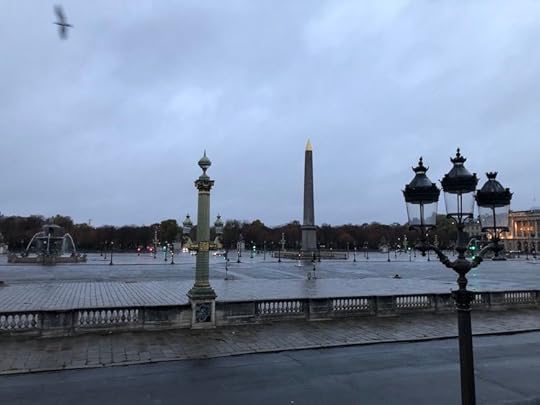
Over the weekend I got a taste of what Confinement, Chapter One must have looked like in Paris. Sunday morning, Tasha and I had the city to ourselves.

But that had changed by Monday morning. Businesses other than 'non-essential' shops and restaurants are open and there was a fair stream of nervy traffic. Hot-headed Parisiens were still running red lights and hooting at one another. Innumerable construction projects are moving ahead, though one wonders in this mostly stagnant world just what future they’re building for.
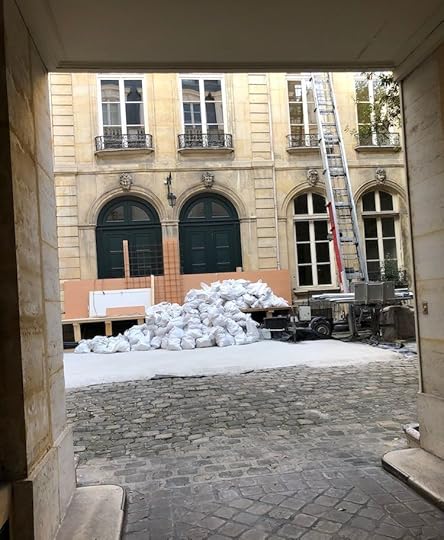
At least they make more sense than the Christmas decorations that the city is putting up. How, exactly, are we meant to celebrate in the lockdown?
 Is this a bad joke?
Is this a bad joke?Doctor and dentist offices are also open in greater numbers, thus giving us our needed excuse to spend the week here. Fortunately, Koffi and Virginie - who should indeed be considered relief workers - are still fostering the health of the canine population with walks in the Forêt de Meudon.
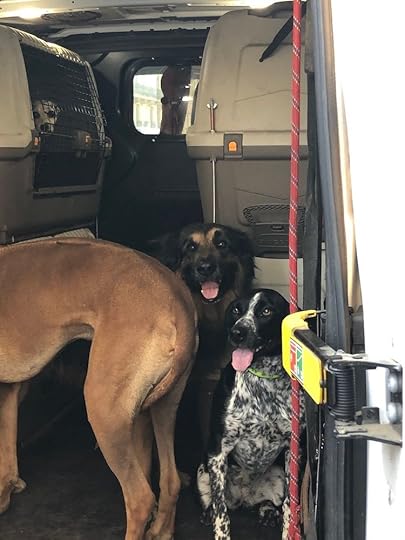
There are more subtle differences from Confinement, Chapter One than open public gardens and more people at work. During the first lockdown, even in the Perche, I was a nervous wreck every time I went into town with the required paperwork (attestation) clutched in my hand. I'd think fearfully about my every move. Unimaginable as it is today, I wore no mask because none were available but I did don plastic gloves because I happened to have them already. When I got home, I’d remove my shoes immediately, air my jacket, set the shopping aside, wash my hands for 20 seconds, wipe surfaces with parsimony since alcohol was also hard to find. I’d feel guilty for not actually washing the food, like all my friends and family seemed to be doing. The one time I did take dish liquid to my apple no amount of rinsing would rid it of a soapy taste.
I look back now at those early days of innocence almost with nostalgia. Today I wear a mask but no gloves; I still put gel on my hands while moving around and wash them when I get home. Getting out the door on the first try with all the required kit is still a challenge, but the gestures have become routine in a way I could not have imagined in March. We’ve grown used to living like this.
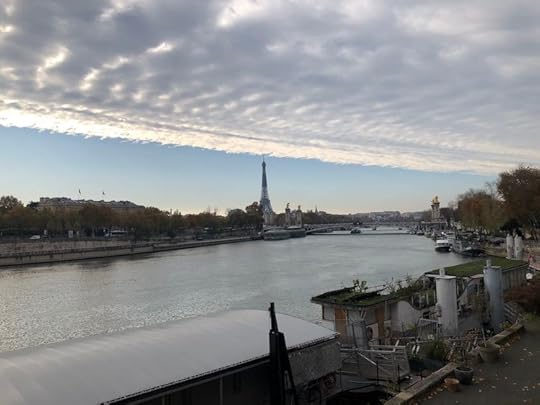
As for Paris, she is a sad place. The traffic and the construction work provide an appearance of near normality but heart conditions are often not apparent to the casual observer. What makes the city pulse, her internal energy, has weakened to a point of near inaudibility. No wonder the Eiffel Tower's middle is swathed in a black brassard of mourning.
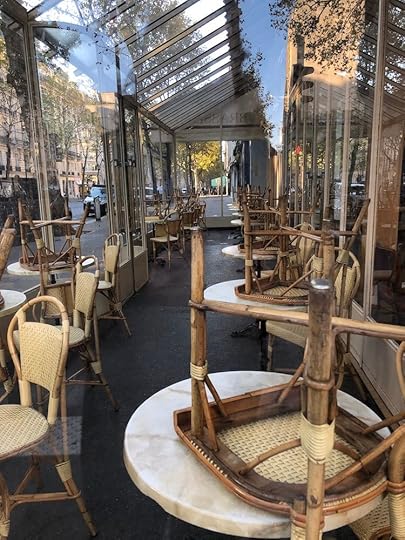
Yesterday I had an iridotomy, a laser treatment to relieve pressure on the eyes. I walked to the doctors’ offices at Odéon along the boulevard St Germain, a thoroughfare lined with cafés and small shops. It looked like Pompeii, everything set up but lifeless.
 Madonna and child, 2020?
Madonna and child, 2020?It’s going to be a long winter and it’s partly our own irresponsible fault; we can’t stop ourselves from behaving stupidly. Some friends who live next to the rue Cler, a pedestrian street with lots of bars and restaurants, said that last Thursday evening, just before the new confinement became effective at midnight, when everyone knew how rampant the virus was, the place was a sea of people breathing mask-less on one another at close range and laughing the night away. Assuming similar scenes occurred across the country, the record number of 60,486 new cases in these last 24 hours, one week later, should not come as a surprise.
At least today the French have something else to contemplate. Since I started this blog, every person I have encountered (and chance would have it that there have been quite few) has said to me, wide-eyed and incredulous: "Et les Américains ?" No one can believe that an American president would reject the results of a democratically held election. "The US is a big, great country, a model to us here in middling France," said dog-walking friend Stéphane. "How can this be happening?"
The intervention on my eyes has temporarily affected my vision. Everything looks blurrier and darker than usual. Quite a fitting state, I’d say, though my eyes are likely to improve much faster than the world in general.
 Angst
Angst
October 24, 2020
Where It's Happening
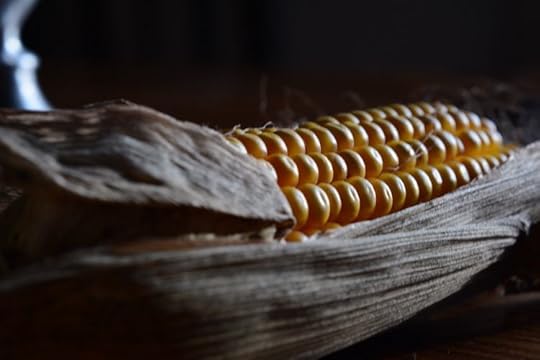
Friday, 23 October
Poor Paris. She has been getting short shrift in this Paris-Perche Diary; Covid-19 keeps getting in the way. First the two months of confinement during which we holed up in the Perche, then the subsequent period when Paris seemed sad and still germ-ier than the countryside and we dosed our urban visits parsimoniously. That situation hasn’t changed—has in fact worsened—but we were supposed to be spending this week in the city and I had planned to boost the Paris half of the blog, until a Covid scare last week has us once again hunkering down in the country. Though the bullet whizzed uncomfortably close to our heads, we are fine and feeling blessed by a second miracle in a short period of time.
Oddly more is happening at the end of the lane in the Perche than in the heart of the capital, especially now that a 9pm anti-Covid curfew has been imposed on the city. Out here the renovation work we have undertaken continues apace. Windows have been added to the barn-in-transition...
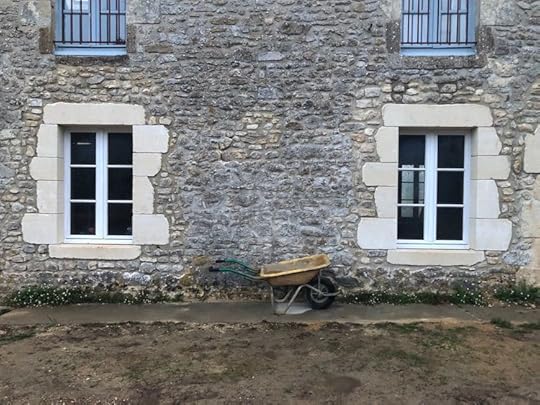
...as has plumbing equipment…
 Ceci n'est pas un Anish Kapoor
Ceci n'est pas un Anish Kapoor…and wires...
 Same wall: the electric nerve centre of a modern house; old milking machine of a barn
Same wall: the electric nerve centre of a modern house; old milking machine of a barnJust yesterday the serpentin for the floor heating was laid...
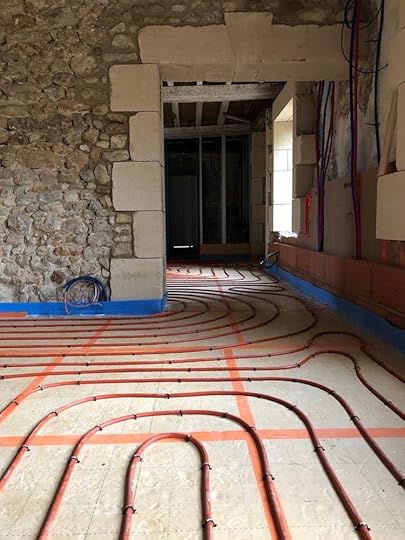
And if we had spent this last week in Paris as planned, we would have missed a momentous event: Monsieur L, from whom we bought the fields surrounding the house and who has continued to cultivate them, conducted his last harvest here at Deux Champs.
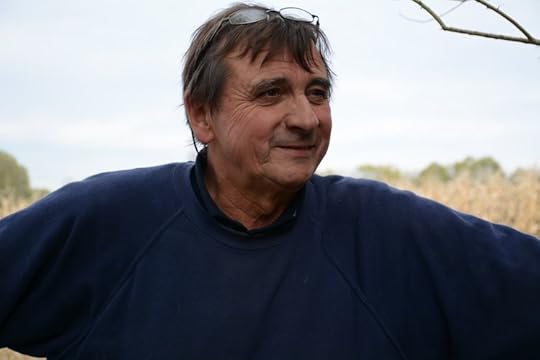
We obviously haven’t known Monsieur L for long, only since we bought the property 18 months ago, but we have felt fortunate in our first contact with the agricultural world that surrounds us here. He is the kind of man who shrugs his shoulders when resident wild boars ravage the edges of his crop for their evening meal. He is expansive and frank and good to his word. "You can take over the land whenever you want," he told us at the signing. "But you should know that we farmers in France can do whatever we like. You can't stop us; we have all the rights."
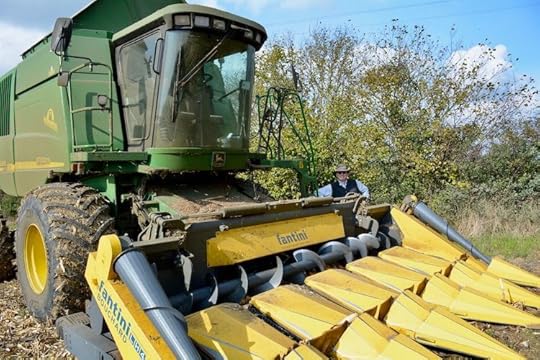
Sunday afternoon the above-pictured machine arrived. David, Tasha and I made a last tour of the two fields. The plants themselves at this point aren't much to behold. This maize is for animal, not human consumption and will be ground into meal, so the more desiccated the better. But we have been watching it grow and ripen; it has been part of our landscape for almost six months now.
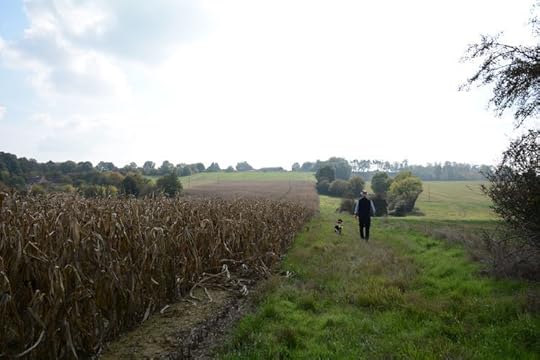
Monday morning work began in earnest. As the yellow cones of the harvester move along, they cut down the plant, remove the ears, extract the grain and spit out the cobs. It’s humbling, to watch a machine multi-task with such proficiency.
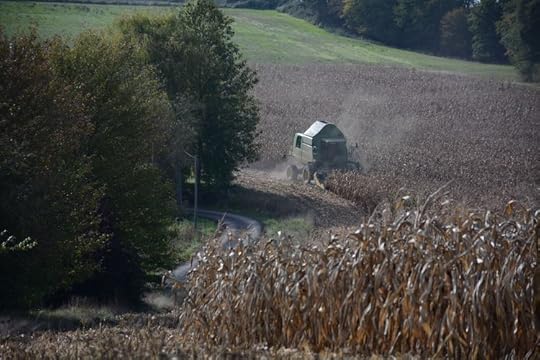
After every couple of rounds, the kernels are spewed out into one of these bins, which when full is hauled away by a tractor to a storage silo.

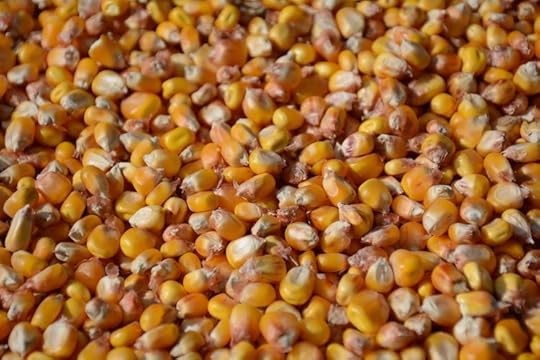
The process feels deeply ingrained in our natures and I say this with no puns intended. Words based on the natural world reflect our symbiotic relationship to the land and what it produces. A harvest strikes a deep chord, even when executed by a monstrous, noisy machine. It's mesmerising.
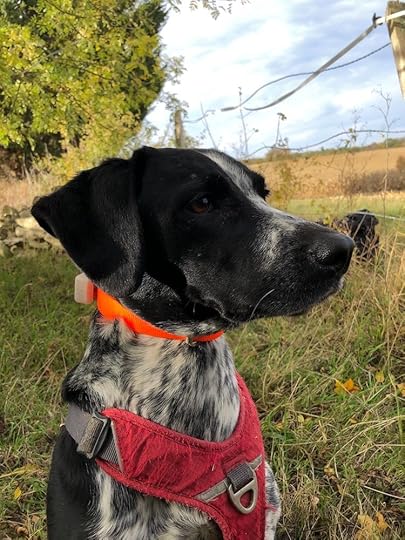
Monsieur L himself appeared late afternoon to witness the last harvest. Like many farmers here, he has patches of land at some distance from his home and the main farm. Along with most of his colleagues, he practises what is known in French as agriculture conventionnelle, an odd term given that it has only been conventional for the last 60 of our 12,000 year agricultural history. It translates as farming with chemical fertilisers and pesticides intended to maximise yield. Though Monsieur L is a moderate user himself, others around us zap the soil repeatedly, leaving fields brown and lifeless for months at a time, with little thought for the collateral damage to flora and fauna.
 Monsieur L and Claire
Monsieur L and ClaireHe had some sobering words on the state of his art: "I never thought I would say this but I can't wait to retire. There are fewer and fewer of us farmers, along with more and more administrative nuisances. Last October I couldn't plant the winter wheat because it rained every single day and the machines couldn't get through the mud. This summer, when it hadn't rained in months, the machines couldn't penetrate the rock-hard soil."
 Estéban and David
Estéban and DavidUnder the guidance of our green guru Claire and her assistant Estéban, we are cooking up an agro-eco plan that should help resuscitate the earth and hopefully the ecosystem too. Next week the most dynamic organic farmer in the area, Patrice W, will sow crops that will re-inject natural nitrates into the soil. We have talked to the Parc National du Perche and hope they will support efforts to restore a wetland area and replant hedgerows, so many of which have been uprooted over the years in the interest of intensive farming. A young film maker Claire knows is making a documentary about the whole process.
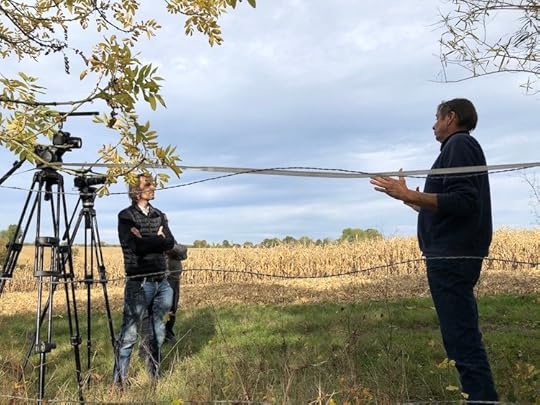
Though all the buzz around us here at Deux Champs is exciting and invigorating, such long absences from Paris do leave me feeling off-kilter. Then again, aren't most of us feeling out of whack much of the time these Covid days? Imbalance and uncertainty seem unavoidable side effects of this insidious disease, ones that we'll all have to learn to live with, at least for the foreseeable future.

